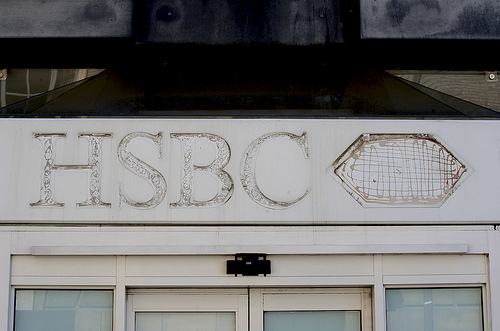Flickr version here.
Monthly Archives: June 2009
Days like this
Souvenir of a perfect day. An unexpected visit by some good American friends, an impromptu lunch in the garden, champagne, gossip and the long peacefulness of an English country afternoon. It doesn’t get much better than this.
Days Like This is also the title of one my favourite Van Morrison songs.
When it’s not always raining there’ll be days like this
When there’s no one complaining there’ll be days like this
When everything falls into place like the flick of a switch
Well my mama told me there’ll be days like thisWhen you don’t need to worry there’ll be days like this
When no one’s in a hurry there’ll be days like this
When you don’t get betrayed by that old Judas kiss
Oh my mama told me there’ll be days like thisWhen you don’t need an answer there’ll be days like this
When you don’t meet a chancer there’ll be days like this
When all the parts of the puzzle start to look like they fit
Then I must remember there’ll be days like this.
We need Hague Convention 2.0. And we need it soon
This morning’s Observer column.
If you’re not worried, you have not been paying attention. Almost without realising it, our societies have become hugely dependent on a functioning, reliable internet. Life would go on without it, but most people would be shocked by how difficult much of the routine business of living would become. It would be like being teleported back to the 1970s. Even a minor conflict could slow the global internet to a crawl. So cyberwar is a bit like nuclear war, in that even a minor outbreak threatens everyone’s life and welfare.
In those circumstances, isn’t it time we thought about devising treaties to regulate it? We need something analogous to the 1925 Geneva Protocol to the Hague Convention, which prohibited chemical and biological weapons. And we need to start now.
UPDATE: Interesting to see that this is also the lead story in today’s New York Times .
The United States and Russia are locked in a fundamental dispute over how to counter the growing threat of cyberwar attacks that could wreak havoc on computer systems and the Internet.
Both nations agree that cyberspace is an emerging battleground. The two sides are expected to address the subject when President Obama visits Russia next week and at the General Assembly of the United Nations in November, according to a senior State Department official.
But there the agreement ends.
Russia favors an international treaty along the lines of those negotiated for chemical weapons and has pushed for that approach at a series of meetings this year and in public statements by a high-ranking official.
The United States argues that a treaty is unnecessary. It instead advocates improved cooperation among international law enforcement groups. If these groups cooperate to make cyberspace more secure against criminal intrusions, their work will also make cyberspace more secure against military campaigns, American officials say.
“We really believe it’s defense, defense, defense,” said the State Department official, who asked not to be identified because authorization had not been given to speak on the record. “They want to constrain offense. We needed to be able to criminalize these horrible 50,000 attacks we were getting a day.”
Any agreement on cyberspace presents special difficulties because the matter touches on issues like censorship of the Internet, sovereignty and rogue actors who might not be subject to a treaty.
United States officials say the disagreement over approach has hindered international law enforcement cooperation, particularly given that a significant proportion of the attacks against American government targets are coming from China and Russia.
And from the Russian perspective, the absence of a treaty is permitting a kind of arms race with potentially dangerous consequences.
Not your day
Flickr version here.
The Wedding Party
Spotted in town today. Flickr version here.
Quote of the day
“Twitter is like SMS is for old people.”
From a Tweet by BBHLabs citing an overheard remark by a 13-year-old.
Control, halt, delete
Excellent FT.com piece on the increasing number of countries which are controlling their citizens’ use of the Internet.
The number of such states is in the dozens, researchers say. In Burma and Moldova, governments recently resorted to pulling the plug on mobile phone networks amid unrest magnified by text messages; in Uzbekistan, there is widespread suspicion of internet monitoring but few ways to prove it. That is despite the fact that a lot of the surveillance and security software in the hands of governments across the world comes from western suppliers. In what is by its nature among the most globalised of industries, technology companies are seeing a revenue boost from governmental interest in data mining, search and storage products, though they periodically draw fire from activists for assisting repressive states.
The most gripping evidence of the change at hand has come from Iran. The theocratic regime has been in a protracted struggle over the free flow of information and communication with many of its largely young urban populace since the day after this month’s disputed election.
The piece focusses mainly on Iran and China, but it’s a good general survey.
Chronicle of a death oversold
Thoughtful reflections by Mark Lawson on news coverage of the death of Michael Jackson. Ends on this note:
Journalism was once grandly said to be the first draft of history. We’ve now moved to a world in which gossip is the first draft of journalism. When the rumour proves true, it’s great luck for viewers. But there will be nights, you fear, when this amazing pace will lead to retractions and embarrassment.
Shadow banking
MJ’s death: the wider consequences
From today’s Guardian.
The owner of the O2 arena could face an insurance liability of up to £300m after the death of Michael Jackson, who had been scheduled to play a series of sell-out gigs starting in the summer.
AEG Live, which persuaded Jackson to stage the 50-date run at the former Millenium Dome, admitted earlier this year that it was finding it difficult to insure the This Is It performances after the initial schedule of 10 concerts grew.
Doubts over whether Jackson would be fit enough both mentally and physically to complete the extended run of gigs increased the potential insurance bill to £300m, according to a report by Reinsurance magazine in March.
Insurers were reluctant to take on such a liability and instead, the AEG chief executive Randy Phillips was reported at the time as saying that the company would be willing to “self-insure” to get the shows to go ahead.
“It’s a risk we’re willing to take to bring the King of Pop to his fans,” he said.
Admirable sentiment. But bad business decision, if true.
And how about this from ArsTechnica on the wider impact on the Net?
The news of pop icon Michael Jackson’s collapse and subsequent death sent ripples across the Web on Thursday afternoon, affecting numerous services and sparking yet another spam campaign. Twitter, Google, Facebook, various news sites, and even iTunes were practically crushed under the weight of the sudden spike in Internet traffic. The phenomenon may not be new on an individual level, but combined across services, it was truly one of the most significant in recent memory.
When news first broke that the Jackson had collapsed in his home, Twitter was immediately abuzz. There were several points when the Ars staff observed between 6,000 and 13,000 new tweets per minute mentioning Michael Jackson before Twitter began to melt down—all before anyone other than TMZ.com was reporting his death. Of course, most of us are intimately familiar with the famed Fail Whale at this point, though Twitter’s meltdown was mostly reflected in a major slowing of the service and the inability to send new tweets.
In fact, Twitter cofounder Biz Stone told the L.A. Times that the news of Jackson’s passing caused the biggest spike in tweets per second since the US Presidential Election. (Similarly, Facebook—also known as Wannabe Twitter—saw a spike in status updates that was apparently three times more than average for the site, though a spokesperson said the site remained free of performance issues.)
Google, on the other hand, began receiving so many searches for news about Jackson that it caused the search engine to believe it was under attack. The site went into self-protection mode, throwing up CAPTCHAs and malware alerts to users trying to find news. A Google spokesperson described the incident as “volcanic” compared to other major news events, confirming that there was a service slowdown for some time.
On the other hand, Rory Cellan-Jones has this:
But did the internet actually buckle? Well, there was some strain – but it seems to have come through well.
In the United States, a company called Keynote, which monitors internet performance, says popular news sites showed marked slowdowns for three hours from about 2230 BST: “The average speed for downloading news items doubled from less than four seconds to almost nine seconds,” said Shawn White from Keynote. “During the same period, the average availability of sites dropped from almost 100% to 86%.”
But guess what: in Europe overnight, there was no spike in internet traffic. Interoute, which operates Europe’s largest fibre optic voice and data network, sent me graphs (see below) showing traffic through the three key internet exchanges in Amsterdam, Frankfurt and London. At all three exchanges, traffic was either around the same as normal overnight, or, in London’s case, actually a little lower.





